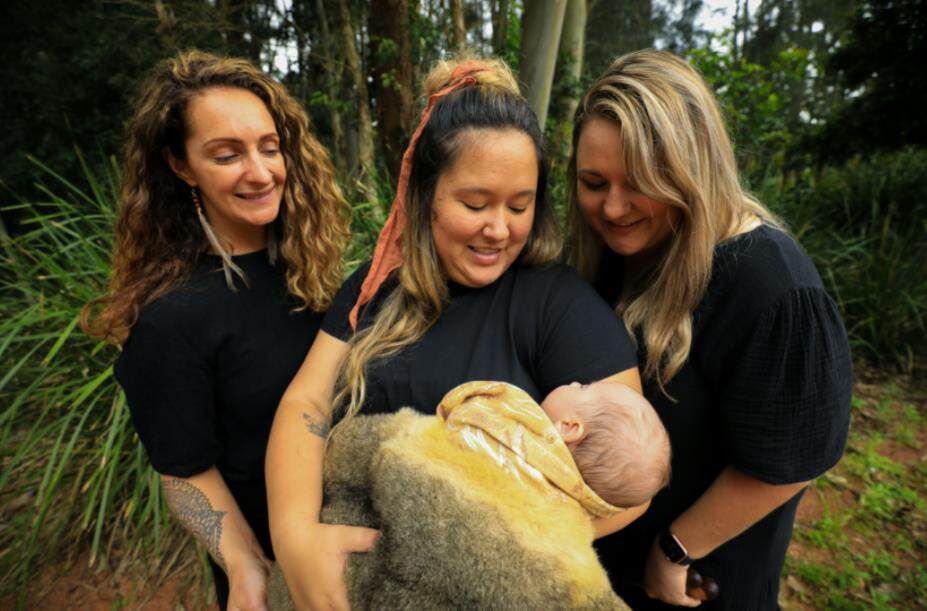An Indigenous-led research project from the University of Newcastle and Hunter Medical Research Institute (HMRI) has found that resources and funding is urgently needed to improve culturally safe and responsive supports for pregnant Aboriginal and Torres Strait Islander women who are trying to quit smoking.


The ‘Which Way?’ findings, published today in the Medical Journal of Australia, is the first Indigenous-led primary evidence developed for, and by Aboriginal and Torres Strait Islander women to guide policy and practice for cessation care.
Wiradjuri woman, Assistant Dean-Indigenous Strategy & Leadership at the University of Newcastle and member of the HMRI’s Equity in Health and Wellbeing Research Program, Dr Michelle Kennedy, was the lead researcher on the project, and said change was desperately needed.
“In order reduce tobacco use and related mortality, we need to centre the voices and experiences of First Nations people with lived experiences,” Dr Kennedy said.
“These novel research findings highlight the importance of taking a client-centred, culturally responsive approach, informing meaningful smoking cessation support strategies, clinical practice, and healthcare delivery.”
“There is no ‘one-size fits all’ approach,” Dr Kennedy said.
A survey as part of the research involved more than 400 Aboriginal women and found that most Aboriginal and Torres Strait Islander women have made, and are continuing to make, attempts to quit.
Women were interested in a range of smoking cessation supports including group-based, online and over the phone. 70% of women preferred support face to face at their Aboriginal health service and 64.3% preferred smoking cessation support delivered by Aboriginal Health Workers or Practitioners.
Data involved smokers and ex-smokers and assessed the differences in age and geographic location, as well as provided commentary on the systemic embedding of tobacco-use on First Nations peoples and how those factors impacted quitting attempts.
The findings supported evidence that comprehensive, community-led support for Aboriginal women is key to cessation success.
It was imperative to Dr Kennedy’s team that the research itself was community-led, collaborating with local Aboriginal health services including ‘Yerin’ on the New South Wales’ Central Coast, Tamworth and ‘Waminda,’ on the New South Wales’ South Coast.
Waminda Executive Manager and Jerrinja, Cullunghutti and Wandi Wandandian woman, Hayley Longbottom said lived experience is key in the research process.
“Mob need to be doing this stuff so we’re not feeling like we’re still being poked and prodded and researched for all the wrong reasons,” Ms Longbottom said.
“When mob lead research, we know that we’re at the forefront and our voices and our ways of knowing, being and doing are privileged.”
“We are doing the best that we can for our people and doing it the right way, not invasive – And that’s how it should be done,” Ms Longbottom said.
The research also assessed the ways in which support to quit smoking is delivered, saying it is important to ensure there are culturally-safe and appealing alternatives to face-to-face counselling, including online and by telephone.
Executive Support Officer for Aboriginal Health Research at the University of Newcastle, Yeena Thompson, said the institution aimed to be a model for best-practice research.
“It’s important, especially in this space, that any work being done is with Aboriginal people, and not for or about Aboriginal people,” Ms Thompson said.
Wiradjuri man and University of Newcastle’s Pro Vice Chancellor of Indigenous Strategy and Leadership, Nathan Towney, echoed that philosophy.
“We have made an all-of-university commitment as part of our Cultural Capability Framework to ensure every staff member understands the process and protocols to conduct ethical research with Aboriginal and Torres Strait Islander participants and are equipped to support their students in ensuring the research they undertake is best practice,” Mr Towney said.
Hunter Medical Research Institute (HMRI) is a partnership between the University of Newcastle, Hunter New England Health and the community.
Dr Michelle Kennedy is a National Health and Medical Research Council’s (NHMRC) early career research fellow. This research was part of the HMRI Equity in Health and Wellbeing Research Program and partly funded by a National Heart Foundation Aboriginal and Torres Strait Islander Award.







































